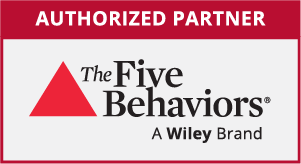Why me?
In today's busy world, the "learn anywhere, anytime" proposition is in high demand and makes online programming necessary in colleges and universities around the Unites States. Yet many institutions do not have the resources to hire an online learning leader (often known in research and practice under the umbrella name of COEO, which is short for Chief Online Education Officer) to launch online programs strategically. Rather, for many institutions, online first grows organically, as faculty are willing and able to experiment. Once adoption reaches a critical point, there are better chances the institution will be able to justify the permanent hire of a COEO or to engage my consulting services of someone like me who can serve as a COEO proxi.
Adoption of a COEO began approximately a decade ago, and we still have little research on this emerging role. I spent years fulfilling the COEO role, researching and writing about this role my research with and for COEOs and speakin about this role at every national and international conference I had the ability to attend. I endeavor to:
- promote awareness of the need to have a COEO, a professional who plays a key role in the modern higher-education organization;
- promote universal adoption of the COEO job title (solving the issue of huge title variability, which makes it very difficult to identify these leaders for research purposes);
- promote accurate and deliberate calibration of legitimate power for this role, so the COEO can have the authority and budget commensurate with the strategic role online plays in the institution's mission;
- and, for those who can't yet have a COEO of their own, I provide various services that a COEO would normally offer.
During the 2020-2023 pandemic, every higher-education institution had to leap into remote learning. Just as quickly as institutions moved to online operations, to the best of the resources and support available, it became apparent that a robust infrastructure is needed as much as the expertise of instructional designers, to say the least. It became clear that there is more to administering quality online education than meets the eye. COVID-19 amplified all the gaps in equity and access that had been bubbling below the surface. How can students study online when they use an internet hotspot and a cell phone? How can faculty teach when they were issued desktops and not laptops. How can advisors serve students online when they were not given cameras and microphones. And the list goes on. The point is that online is not something we bolt on top of onsite operations. It is the whole university running side by side with the institution's onsite operations.
For this microcosm of the university to perform optimally (i.e., to meet the unique needs of online students, who are often adult learners who hold a job, have a family, and care for an elder or a child), it takes a separate set of professionals trained to work with online students. It takes at least one online admissions advisor (and add another advisor for every X number of students that your institution's admission advising load is). It takes at least one online enrollment advisor (and add another advisor for every X number of students that your institution's erollment advisong load is). So on an so forth. Every single aspect of operating an onsite university needs to have an online counterpart. And the onsite and online counterparts need to work in perfect synch, so that onsite students and online students receive the same high levels of support and service. Furthermore, online administration involves some processes and technologies unique to this mode of delivery. For instance, you cannot teach out-of state students without obtaining state authorization (typically done through NC-SARA, with a separate state reciprocity agreement with California). Regional accreditation rules have some stipulations unique to online education. Putting education in a fixed text or multimedia format also means paying closer attention to copyright and accessibility laws. We need to make sure we are not building barriers for online students and we need to consider the added time online faculty need to design and build courses that meet quality standards as measured with research-based, peer reviewed instruments.
The complexities of operating online programs do not stop here but what is clear is that it takes someone intimately familiar with online administration to advise you. I am here to fulfill that role for you. I can serve you with everything from being your Chief Online Education Officer (COEO) to performing any and all functions within the COEO's portfolio. Using my 20+ years of global experience, as well as my higher education leadership education, research, and practice, I can help you navigate the complexities of administering digital, hybrid, and online education at your institution. If we have not met yet, here is
my background at a glance, and I look forward to meeting you!


